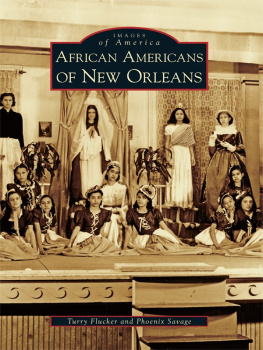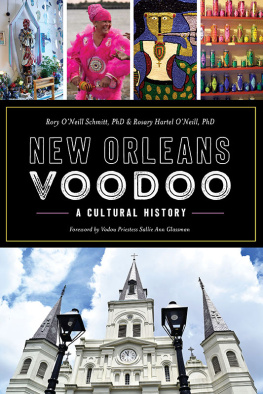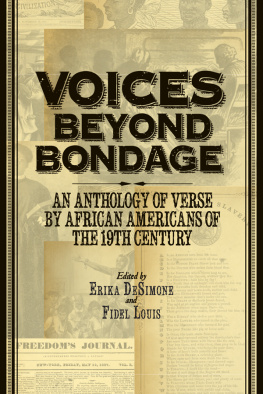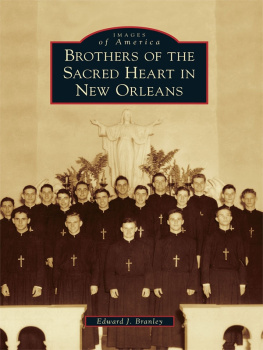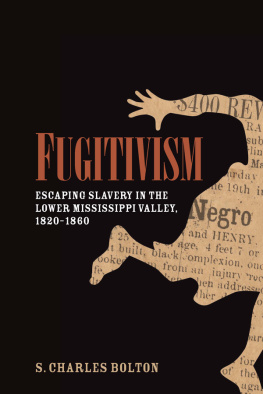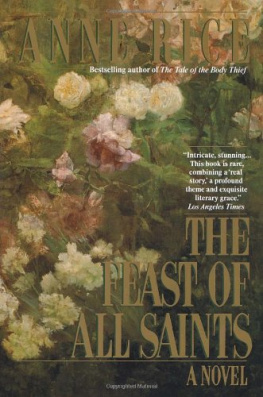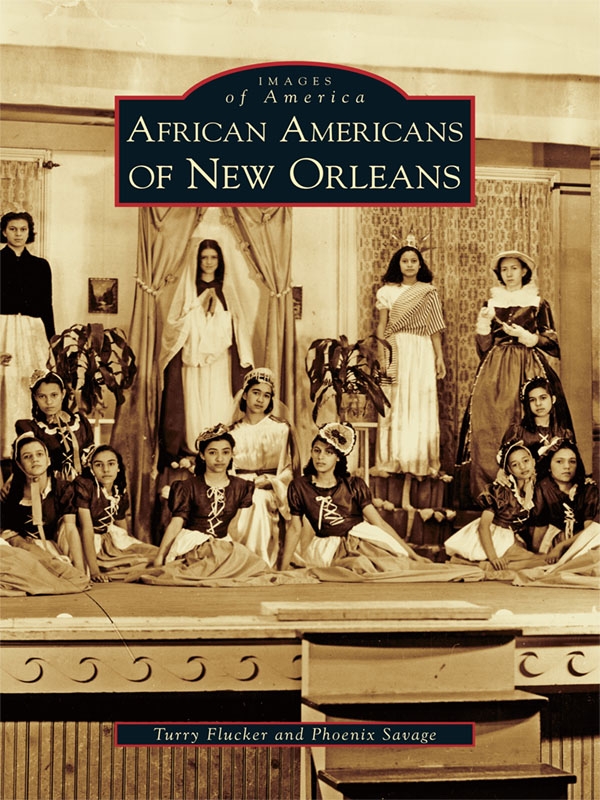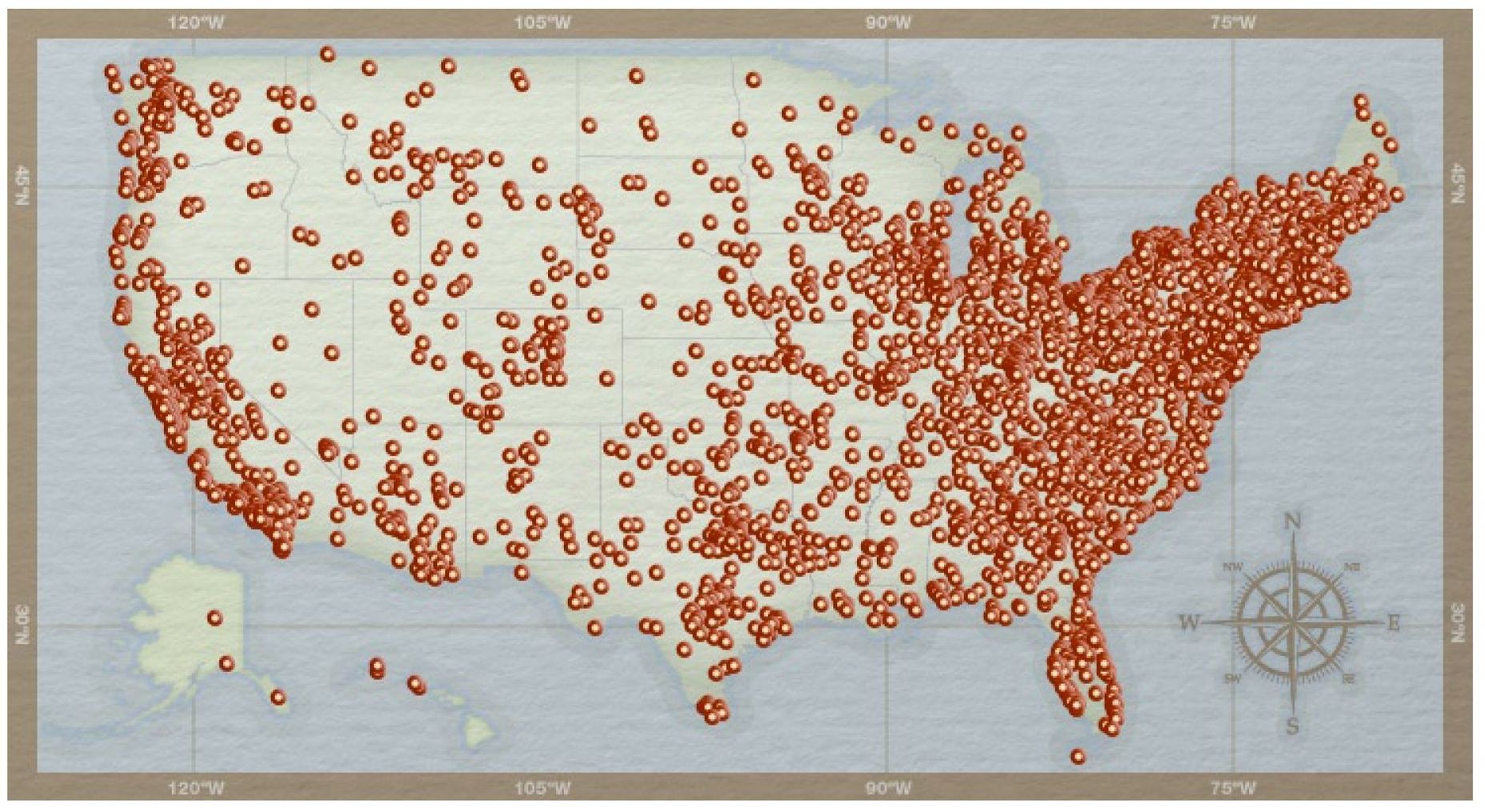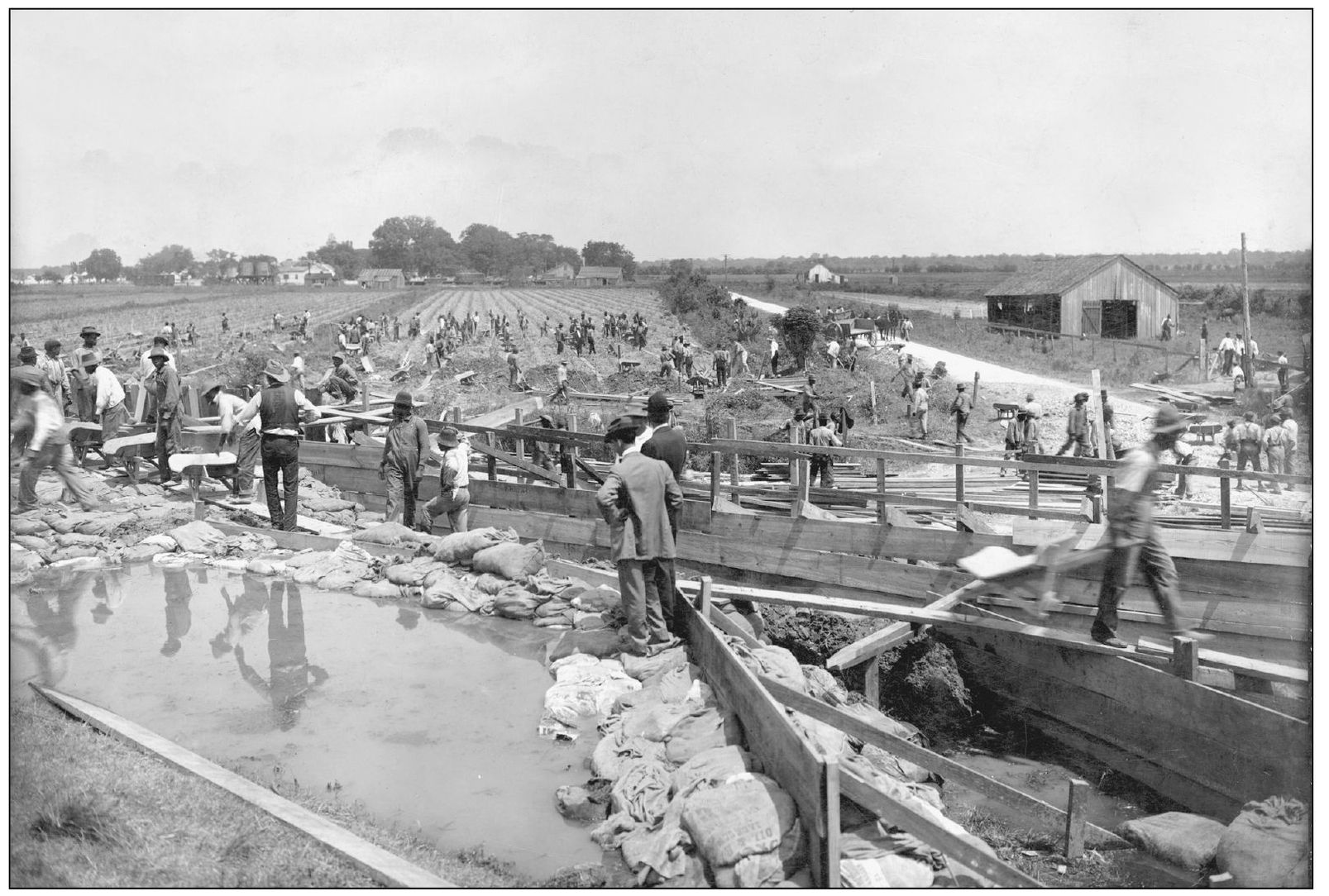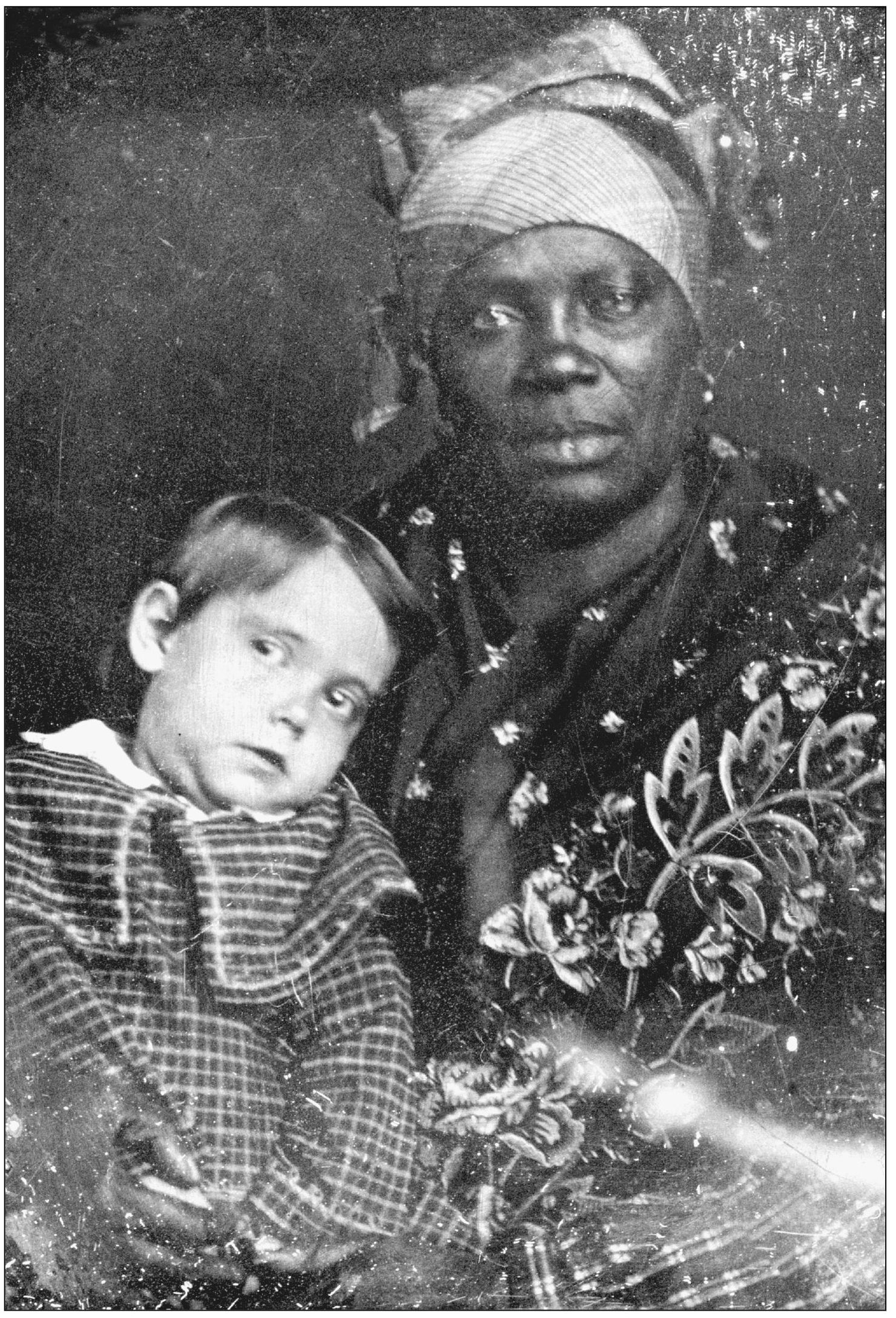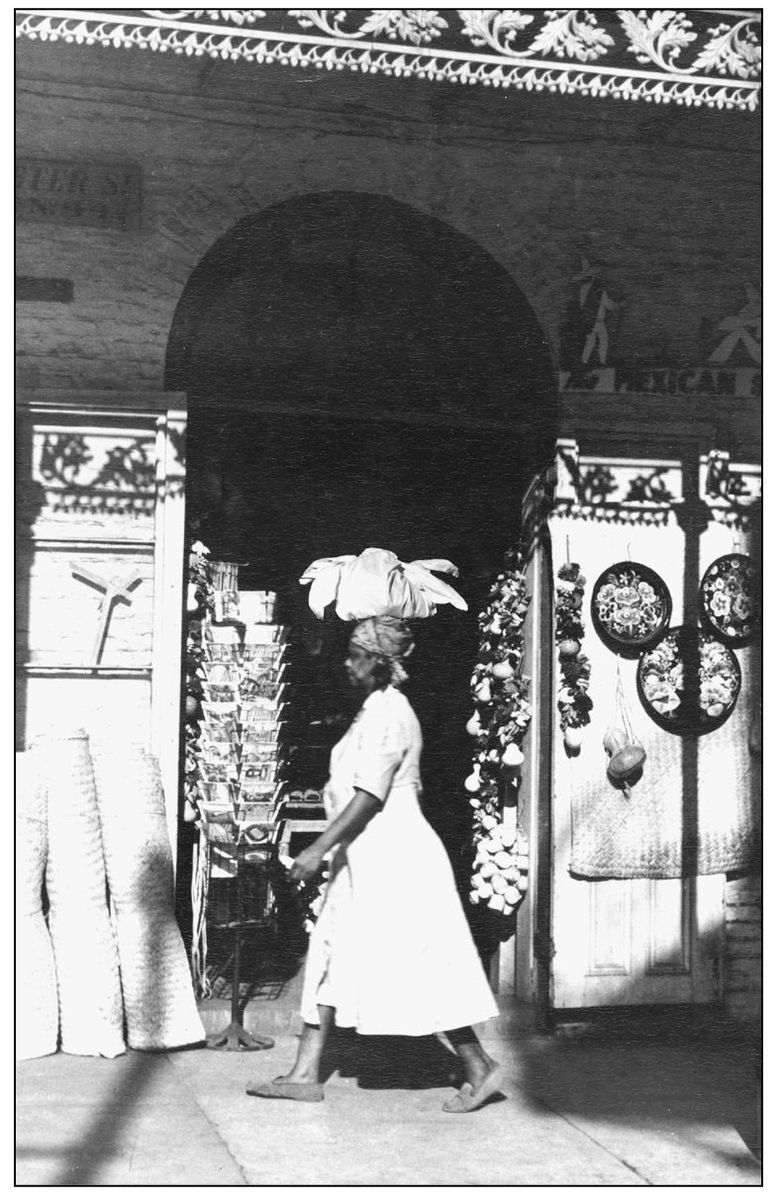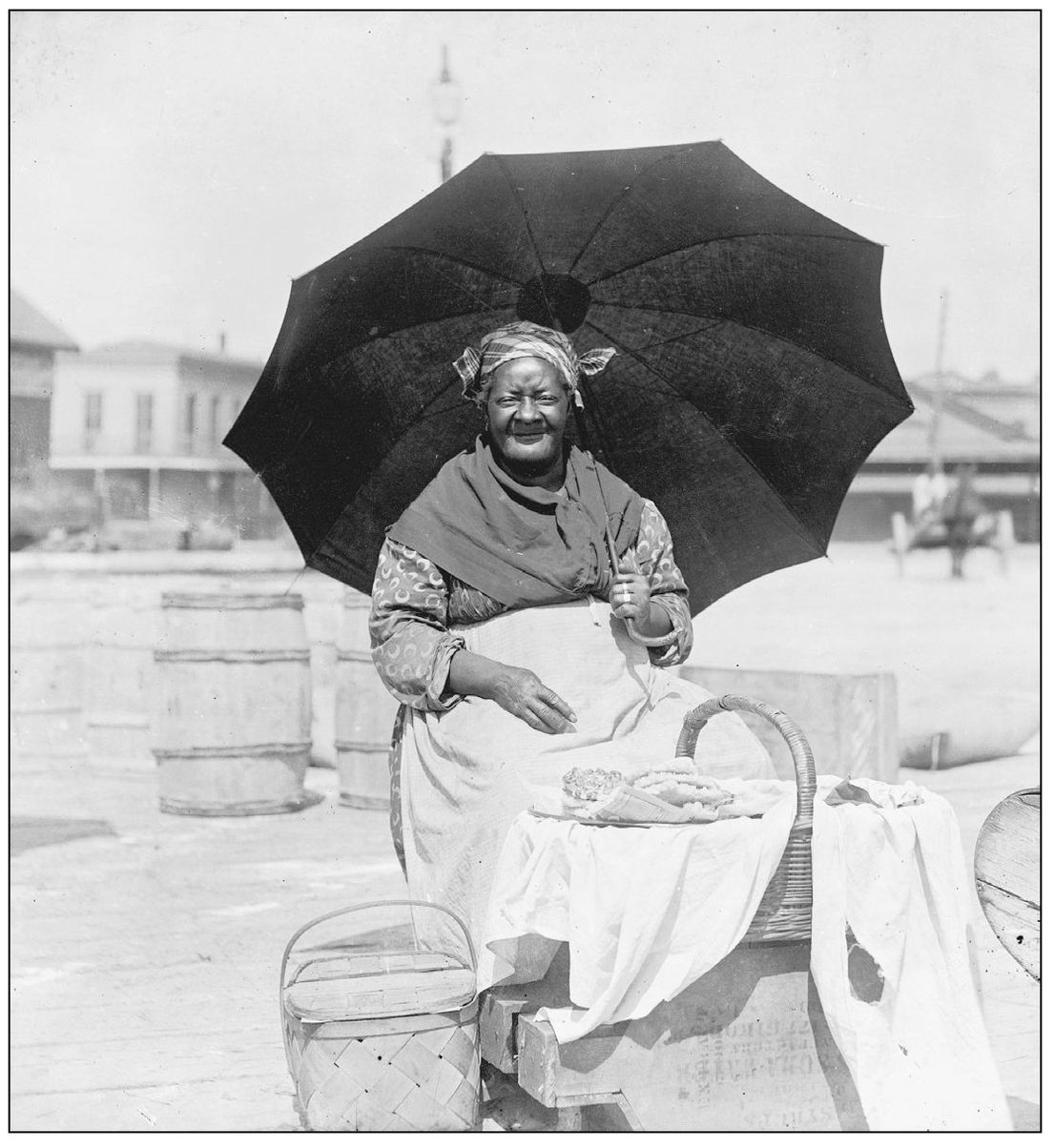This book would not have been possible without the love and support of Austin J. Sonnier. We thank you for your delicious Louisiana Creole specialties, which fed our bodies and our souls.
We also wish to thank the following family and friends for their constant encouragement and good will: Kirby and Yolanda Flucker, Austin M. and Nellie Sonnier, the Savage family, S. J. De Pland, Rhonda Richmond, Oyekundle Oyegbemi, Sister Goddess Circle, Gail D. Hughes, Leah Lewis, Carolyn Bercier, Sarah Dave, Christopher Vignaud, and Michelle Hudson.
A project like this requires the assistance of archivists, historians, and museum professionals. We would like to thank each of them for their assistance during this process: Greg Lambousy (director of collections, Louisiana State Museum); Jeanne Biddiscombe (registrar, Louisiana State Museum); Elizabeth Sherwood (assistant registrar/image requests, Louisiana State Museum); Wayne Phillips (curator of textiles and costumes, Louisiana State Museum); Irene Wainwright (archivist, New Orleans Public Library); Charlene Bonnette (archivist, State Library of Louisiana); Mamie Sterkz Gasperecz (executive director, Hermann-Grima/Gallier Historic Houses); Christopher Harter (director of the library, Amistad Research Center at Tulane University); Lee Hampton (executive director, Amistad Research Center at Tulane University); Michael Campbell (archivist/cataloger, Dillard University Library and Archives); Karen Watkins (executive assistant to the president, Xavier University of Louisiana); and Andrea Jackson (interim archivist, Robert Woodruff Library at Atlanta University).
We would like to give a special thanks to the following individuals who provided us with images from their family archives: Austin M. Sonnier Jr.; Barbara Trevigne; Justice Bernette Joshua Johnson; Keith Weldon Medley; A. P. Tureaud Jr.; Okyeame Haley, J.D.; Lolis Eric Elie; Sybil Haydel Morial; Ron Bechet; Sheleen Jones-Adenle; and Dr. Laura V. Rouzan. The following institutions provided us with invaluable information: the Historic New Orleans Collection, the Special Collections and Archives at the University of New Orleans, Wisconsin Historical Society, Howard University, and the University of Delaware. A very special thanks to the Sisters of the Holy Family and Sr. Carol Leslie.
BIBLIOGRAPHY
Beauchamp-Byrd, Mora. A Celebration of Faith. New Orleans: New Orleans African American Museum of Art, Culture, and History (NOAAMACH), 2008.
Bennett, Lerome Jr. Before the Mayflower: A History of Black America . New York: Penguin, 1988.
Blassingame, John, Black New Orleans 18601880. Chicago: University of Chicago Press, 1973.
Cassimere, Raphael. African Americans In New Orleans before The Civil War. Unpublished research for the Jean Lafitte National Historical Park and Preserve, 1995.
Davis, Cyprian. Herriette Delille: Servants of the Poor. New Orleans: Archdiocese of New Orleans, 2004.
Deggs, Mary Bernard. No Cross, No Crown: Black Nuns in Nineteenth-Century New Orleans . Edited by Meacham Gould, Virginia Nolan, and Charles E. Bloomington. Illinois: Indiana University Press, 2001.
Desdune, Rodolphe. Our History and Our People. Translated by Sr. Dorothea Olga McCants. 1911 Reprint. Baton Rouge: Louisiana State University, 1973.
Faircloth, Adam . Race and Democracy: Civil Rights Struggle in Louisiana 19151972. Athens, GA: University of Georgia , 1995.
Franklin, John Hope. From Slavery to Freedom: A History of Negro Americans, Fifth Edition. New York: Knopf, 1980.
Hall Midlo, Gwendolyn, Africans in Colonial Louisiana. Baton Rouge: Louisiana State University, 1992.
Hill, Lance. The Deacons for Defense; Armed Resistance and the Civil Rights Movement. Chapel Hill: University of North Carolina, 2004.
Hirsh Arnold R. and Logsdon, Joseph. Creole New Orleans Race and Americanization. Baton Rouge: Louisiana State University, 1992.
Medley, W. Kieth. We As Freemen: Plessy v. Ferguson . Gretna, LA: Pelican Publishing, 2003.
Rousseve, Charles Barthelemy. The Negro in Louisiana . 1937. Reprint, New York: Johnson, 1970.
Rouzan, Laura. A Rhetorical Analysis of Editorials in LUnion and the New Orleans Tribune. Florida State University: dissertation, 1989.
Wilds, Dufour, and Cowan. Louisiana Yesterday and Today. Baton Rouge: Louisiana State University, 1996.
Find more books like this at
www.imagesofamerica.com
Search for your hometown history, your old
stomping grounds, and even your favorite sports team.
One
TWENTY DOLLARS WORTH OF WORK
Pay Me 10 Dollars and Ill give you 20 Dollars of Work.
Allison Tootie Montana (19222005)
POYDRAS PLANTATION. Unidentified laborers work the Poydras plantation, located just outside of New Orleans. This image depicts the vain attempts to control the breach of the crevasses located adjacent to the plantation. In 1882, there were 284 crevasses in Louisiana; by 1922, there were only three, with one of the three at Poydras. The innovation of levees caused the demise of the use of crevasses as an effective means of flood control. The first levee in New Orleans was 3 feet high and 5,400 feet long when it was built in 1727. Two hundred years later, during the flood of 1927, the citizens of New Orleans cried out, Cut the levee at Poydras. The men laboring in this image are representative of the task of filling over 640,000 sacks of sand to shore up the levees. (Courtesy of the Louisiana State Museum.)
CAREGIVER FOR ALL. This c. 1850 Daguerreotype image depicts a common scene of 19th-century New Orleans. An African American woman is posed with her beloved charge, typically a young white child. Such images were generally not the idea of the domestic herself, but were intended to memorialize the affection between the servant and those she served. (Courtesy of the Louisiana State Museum.)
STROLLING WITH LAUNDRY. In this image, an unidentified woman balances a bundle of laundry on her head as she strolls past a shop in the French Quarter that sells goods from Mexico. Taking in other peoples laundry was a specialty among domestic employments. (Courtesy of the Louisiana State Museum.)
PRALINE SELLER. During the late 19th to early 20th centuries, street vendors hawked their wares to pedestrian passersby. This image depicts a common scene in New Orleans: off Decatur Street near the French Market, a praline seller with a parasol offers homemade pralines from her wicker baskets. Traditionally pralines were made of brown sugar, granulated sugar, cream, butter, and pecans, but no matter how basic the recipe, no two praline sellers delicacies were alike. (Courtesy of the Louisiana State Museum.)

